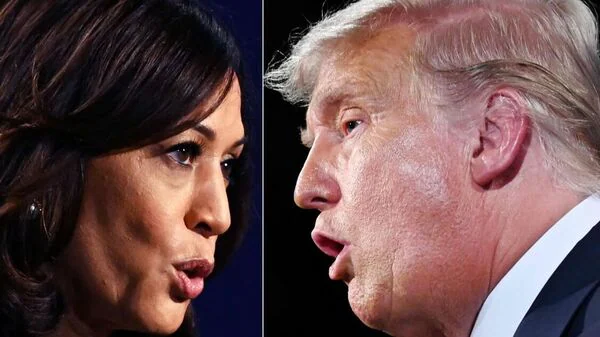As Kamala Harris gains momentum in the 2024 presidential race, the possibility of her winning the presidency while Republicans take control of the Senate is becoming increasingly likely. This scenario could create significant obstacles for her administration, with Republicans poised to hold substantial veto power over her agenda and judicial nominations.
With improving polling for the GOP in key states like Montana, the prospect of a Republican-controlled Senate is growing. A GOP-led Senate could block Harris’ appointments, including crucial judicial nominees and potential Supreme Court justices, while also stifling her legislative ambitions. Senior Senate Republicans have already indicated that Harris would need their cooperation to secure any votes on her judicial nominees, underscoring the challenges she may face in filling both executive and judicial positions.
“If they want their nominees to get any floor time, they would have to negotiate with us,” said Senator John Cornyn, a Texas Republican and key member of the Judiciary Committee. He emphasized that the GOP would resist any effort by Harris to nominate what he called “radical” candidates, even for the Supreme Court.
Harris’ supporters fear that without control of both the House and Senate, her administration would struggle to achieve significant legislative victories. Frankie Veltri, a 77-year-old voter from Goodyear, Arizona, expressed concern that Harris’ presidency could stall without a united Congress. “She has to have both the House and the Senate to get anything done,” Veltri said. “Otherwise, it’ll be the same old grind, with promises unfulfilled.”
The Republican Party only needs to flip two Senate seats to gain control, with races in West Virginia and Montana presenting key opportunities. In Montana, where Democratic Senator Jon Tester is trailing in the polls, the outcome could be pivotal. Even if Democrats perform strongly in swing states, a Republican Senate would mean Harris would be the first president since 1989 to enter office without her party in control of Congress. This would place her in a unique and challenging political landscape, defined by intense polarization between the two parties.
In such a scenario, Harris’ ability to pass key initiatives — including Medicare drug price negotiations and housing investments — would be severely limited. While essential bills like government funding would still require bipartisan negotiation, much of Harris’ agenda would likely face obstruction from Republicans. As Rep. Nanette Barragán, a Democrat from California, noted, a divided government would make it “always a challenge” to achieve legislative progress.
Harris’ legislative agenda is not the only concern. The issue of judicial appointments looms large. Although it is uncertain when the next Supreme Court vacancy will arise, historical patterns suggest that Harris would likely have an opportunity to nominate at least one justice. However, with a GOP-controlled Senate, such a nomination would be subject to intense scrutiny, and Republicans would hold the power over whether a vote occurs.
Arizona voter Charlie Veltri emphasized the importance of down-ballot races in determining Harris’ success. “It’s not enough just to win the presidency,” he said. “She’s got to have control of the Senate, at the very minimum.”
As Harris continues her campaign, the shadow of a potentially divided government casts uncertainty over her ability to deliver on her promises. The outcome of the Senate races, particularly in states like Montana, could play a decisive role in shaping the future of her presidency.
Key Points:
- Kamala Harris’ Rising Prospects: Harris is gaining momentum in the 2024 presidential race, but the possibility of a Republican-controlled Senate could pose challenges for her presidency.
- Republican-Controlled Senate: If Republicans take control of the Senate, they could block Harris’ legislative agenda and judicial appointments, including for the Supreme Court.
- Senate Negotiations: Harris would need to negotiate with Republicans to secure votes on judicial and Supreme Court nominees, as GOP leaders emphasize they would resist radical nominations.
- Obstructed Legislative Agenda: Without a united Congress, Harris’ ability to pass key policies like Medicare drug price negotiations and housing investments would be severely limited.
- Crucial Senate Races: Key Senate races, particularly in Montana and West Virginia, could determine whether the GOP gains control, with Democrats only needing to defend a few vulnerable seats.
- Historical Precedent: Harris would be the first president since 1989 to enter office without control of both chambers of Congress, placing her in a polarized and challenging political environment.
- Potential Supreme Court Vacancy: Though uncertain when a vacancy may arise, history suggests Harris could have the opportunity to nominate a Supreme Court justice, but a GOP-led Senate would control the floor vote.
- Down-Ballot Importance: Harris’ supporters emphasize that winning the presidency alone is not enough; securing control of the Senate is essential for advancing her agenda.



